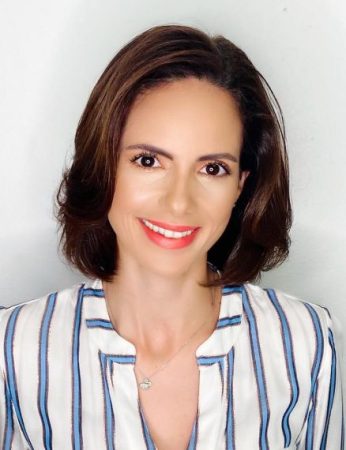The U.S. Department of State announced the selection of Glymaris Lugo ’17, St. Cloud State University Teaching English as a Second Language graduate program alumna, for a virtual project, engaging with English language learners and teachers online in Mexico at Normal School of Ixtlahuaca. Lugo is among the first to be selected for the Virtual English Language Educator Program, a new program created for the 2022-2023 academic year.
After teaching English as a Foreign Language (EFL) abroad for a year in Daegu, South Korea, Lugo enrolled in the TESL graduate program at St. Cloud State and graduated in Dec. 2017. She studied through a St. Cloud State graduate assistantship program and worked as a Teacher’s Assistant at the Intensive English Center (IEC) for two academic years.
After graduation, Lugo went on to serve as a long-call substitute teacher for the St. Cloud Area School District 742 and taught summer ESL courses in Los Angeles, California. She later went on to teach EFL at two accredited private universities in Puerto Rico.
In this new virtual project, Lugo will conduct various teaching duties:
(1) three to four English conversation clubs for undergraduate Education majors in their third and fifth semesters of study.
(2) A teacher training course for colleagues (English professors at Normal School of Ixtlahuaca).
(3) A monthly workshop for the abovementioned students and professors with presentations on topics such as American culture, history, literature, or society.
“It’s like a dream come true! One of the reasons why I decided to become a language instructor is because I love connecting with people from different parts of the world. I love learning about their culture and views,” said Lugo of her new role. “I love helping them express their uniqueness in English (the global language), so that they also can connect with the world.”
The Virtual English Language Educator Program is the premier online opportunity for experienced teachers of English to speakers of other languages (TESOL) to enact meaningful and sustainable changes in the way that English is taught abroad. Through projects developed by U.S. Embassies in more than 80 countries, Virtual Educators work with local teachers, students, and educational professionals to improve the quality of English language instruction offered at prestigious universities, academic institutions, and cultural centers.
Lugo said that her experience as a graduate assistant teaching in the Intensive English Center gave her the perfect blend of education and experience.
“Studying my master’s degree while teaching at the Intensive English Center gave me the opportunity to apply everything I learned immediately—on a daily basis,” she said. “It was a safe space with support from our professors and supervisors. But, at the same time, the responsibility we had with our students was — of course — very real.
“My IEC experience greatly contributed to my application to English Language Programs. They wanted applicants with experience working in higher education and working with diverse populations. As a Virtual Educator, I’ve already pulled up tools and resources that I used in the IEC and the graduate program to plan the curriculum for the courses in Mexico.”
She is enjoying being able to reach more students virtually and the ability to help her students advance both in English and in their technology skills simultaneously.
“I feel we are living fascinating times now. Thanks to technology and social media, there are so many possibilities of what people can do with their passions and professions. They can start online businesses, showcase their talents, start platforms, and build communities all from the comfort of their own home,” she said. “If you think about it, the possibilities are endless. I saw that English, as the global language, is the common factor in that exchange around the world. I feel that language is something I’m passionate about, and I’m good at it. So, I wanted that to be my contribution. I want to help people develop the skill to communicate in English, so they can pursue their dreams and share their talents with the world.”
English Language Programs has placed thousands of TESOL scholars and educators with international partner institutions, abroad and virtually, to promote English language learning, enhance English teaching capacity, and foster mutual understanding between the U.S. and other countries through cultural exchange. These projects are challenging and the teachers selected represent the best of the U.S. TESOL community. Virtual Educators are among the more than 50,000 individuals participating in U.S. Department of State exchange programs each year.

